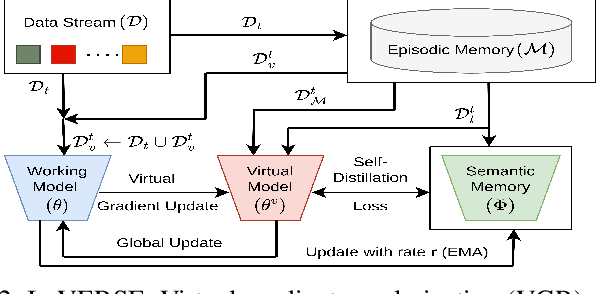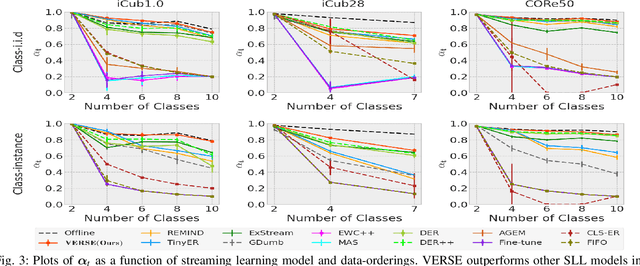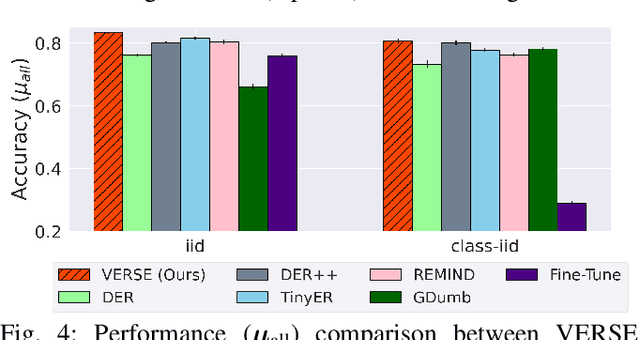Vinay K. Verma
Convolutional Prompting meets Language Models for Continual Learning
Mar 29, 2024



Abstract:Continual Learning (CL) enables machine learning models to learn from continuously shifting new training data in absence of data from old tasks. Recently, pretrained vision transformers combined with prompt tuning have shown promise for overcoming catastrophic forgetting in CL. These approaches rely on a pool of learnable prompts which can be inefficient in sharing knowledge across tasks leading to inferior performance. In addition, the lack of fine-grained layer specific prompts does not allow these to fully express the strength of the prompts for CL. We address these limitations by proposing ConvPrompt, a novel convolutional prompt creation mechanism that maintains layer-wise shared embeddings, enabling both layer-specific learning and better concept transfer across tasks. The intelligent use of convolution enables us to maintain a low parameter overhead without compromising performance. We further leverage Large Language Models to generate fine-grained text descriptions of each category which are used to get task similarity and dynamically decide the number of prompts to be learned. Extensive experiments demonstrate the superiority of ConvPrompt and improves SOTA by ~3% with significantly less parameter overhead. We also perform strong ablation over various modules to disentangle the importance of different components.
VERSE: Virtual-Gradient Aware Streaming Lifelong Learning with Anytime Inference
Sep 15, 2023



Abstract:Lifelong learning, also referred to as continual learning, is the problem of training an AI agent continuously while also preventing it from forgetting its previously acquired knowledge. Most of the existing methods primarily focus on lifelong learning within a static environment and lack the ability to mitigate forgetting in a quickly-changing dynamic environment. Streaming lifelong learning is a challenging setting of lifelong learning with the goal of continuous learning in a dynamic non-stationary environment without forgetting. We introduce a novel approach to lifelong learning, which is streaming, requires a single pass over the data, can learn in a class-incremental manner, and can be evaluated on-the-fly (anytime inference). To accomplish these, we propose virtual gradients for continual representation learning to prevent catastrophic forgetting and leverage an exponential-moving-average-based semantic memory to further enhance performance. Extensive experiments on diverse datasets demonstrate our method's efficacy and superior performance over existing methods.
 Add to Chrome
Add to Chrome Add to Firefox
Add to Firefox Add to Edge
Add to Edge